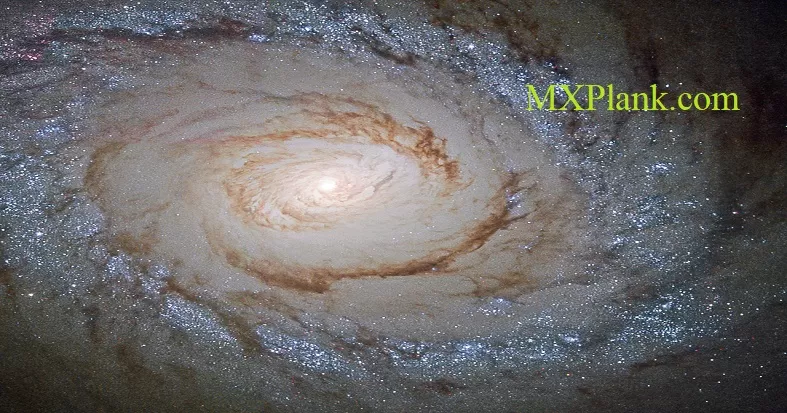AS YOU GAIN MORE AND MORE SCIENTIFIC KNOWLEDGE, YOU TALK FUTILE PHILOSPHY LESS AND LESS

You may not be an expert on microbiology, geology, or climatology, but even so, scientific knowledge may factor into your everyday decision-making. Science has implications for issues we face everyday - and while science doesn't dictate which choice is the right one, it does give us important background knowledge to inform our decisions. Here are just a few examples of everyday decisions informed by science:
To wash or not to wash. One hundred and seventy years ago, hand-washing wasn't an everyday ritual - even for doctors working in both the morgue and the maternity ward! However, since then, biologists have developed the germ theory of disease, and research has shown that hand-washing prevents the spread of infection. A 2005 study found that promoting hand-washing among children in low-income areas could reduce the incidence of diseases like pneumonia by fifty percent! Though washing one's hands might seem like a simple habit today, it is so commonplace only because scientific knowledge has emphasized its benefits
Which fish? Will you have the local tilapia or the orange roughy? Taste certainly factors into this decision, as does cost. But what about science? Conservation biology tells us that the orange roughy's population has been decimated by the seafood industry. Even more worrisome, biologists have figured out that the fish lives to be 100 years old and doesn't begin to reproduce until it's 20 years old, making it difficult for the population to recover from over-fishing. Tilapia, on the other hand, is farmed specifically for human consumption and is not threatened. Which will you choose?
Dodging disaster:
Everyone needs a place to call home, but where will yours be? If you're considering a house in earthquake country, you might want to take a cue from seismologists and geologists: not all soil types are the same. Scientists have determined that some areas within earthquake zones are unusually dangerous and damage-prone because of the possibility of liquefaction - a phenomenon in which shaking causes soil particles to flow past one another easily, like a liquid. In this case, science can point you towards a more stable and safe home.
The process of science is a way of building knowledge about the universe - constructing new ideas that illuminate the world around us. Those ideas are inherently tentative, but as they cycle through the process of science again and again and are tested and retested in different ways, we become increasingly confident in them. Furthermore, through this same iterative process, ideas are modified, expanded, and combined into more powerful explanations. For example, a few observations about inheritance patterns in garden peas can - over many years and through the work of many different scientists - be built into the broad understanding of genetics offered by science today. So although the process of science is iterative, ideas do not churn through it repetitively. Instead, the cycle actively serves to construct and integrate scientific knowledge.
And that knowledge is useful for all sorts of things: from designing bridges, to slowing climate change, to prompting frequent hand washing during flu season. Scientific knowledge allows us to develop new technologies, solve practical problems, and make informed decisions - both individually and collectively. Because its products are so useful, the process of science is intertwined with those applications:
Am I better yet? You're over your strep throat and feeling well again, so is it time to ditch the antibiotics? Well, you could, but evolutionary biology suggests that stopping a course of antibiotics early encourages the evolution of antibiotic resistant bacteria, by allowing those bacteria not quite killed off by the incomplete dose of antibiotics to preferentially survive and reproduce. Those mildly resistant bacteria could come back to haunt you or infect someone else, and if they do, your original antibiotic may not work against the new strain.
Petroleum preferences:
You're in the market for a new car - but which one? There are many considerations, including mileage. A car that gets better mileage means that you'll pay less for gas. But geology can shed even more light on the issue. The petroleum necessary to make gas is a limited resource. The Earth only has so much oil and geologists estimate that we have already tapped much of that. The more petroleum we use, the harder it becomes to find. The harder petroleum is to find, the more expensive each barrel of oil becomes, and the more you'll be paying at the gas pump! A car that conserves gas might be more expensive now, but could end up paying off in the long run.
New scientific knowledge may lead to new applications.
For example, the discovery of the structure of DNA was a fundamental breakthrough in biology. It formed the underpinnings of research that would ultimately lead to a wide variety of practical applications, including DNA fingerprinting, genetically engineered crops, and tests for genetic diseases.
New technological advances may lead to new scientific discoveries.
For example, developing DNA copying and sequencing technologies has led to important breakthroughs in many areas of biology, especially in the reconstruction of the evolutionary relationships among organisms.
Potential applications may motivate scientific investigations.
For example, the possibility of engineering microorganisms to cheaply produce drugs for diseases like malaria motivates many researchers in the field to continue their studies of microbe genetics
What science has done for you lately:
In this section, we've seen that science touches many aspects of our lives: from the mundane (e.g., the plastic lid on your morning coffee) to the world-changing (e.g., the eradication of smallpox). And while some of the impacts of science on society may not be clear boons, many are. Without science, we would not have even basic knowledge about promoting health, safety, and environmental stewardship. This knowledge informs both our personal and societal decision-making. Scientific knowledge also forms the basis for technological advancement. From a simple light bulb, to a complex computer, to genetically engineered rice - they are all man-made technologies based on basic scientific knowledge.
Here, we've seen how scientific knowledge affects your life everyday, often without much notice. But this doesn't mean that you have to accept whatever scientific information the media throw your way. In the next section, you'll learn how to become a critical consumer of scientific information and how an understanding of science can change the way you look at the world...
Shaping society:
Just as it shapes your personal decision-making, scientific knowledge also helps inform regulatory decision-making and policy - and the results of these decisions are everywhere. In fact, they are so ubiquitous that you probably never even stop to think about them. Why is your quart of milk decorated with a nutrition label? Why do schools check students' vaccination records? Why aren't your new kitchen tiles made of asbestos? Why is it illegal to pour your used motor oil down a storm drain? Because of science, of course. Science informs policies that promote our health, safety, and environmental stewardship.
Science doesn't dictate policy, but it does give us a "how-to" manual for reaching the outcomes that we decide we want. For example:
Want to get rid of polio?
In the 1940s and 50s, American society got behind efforts to prevent and treat polio by donating to the organization called the March of Dimes. Through the March of Dimes, that societal concern financed research on polio vaccines. Science provided us with the vaccine that made prevention possible, and it also gave us an understanding of polio transmission that shaped our approach to administering the vaccine. If we wanted to truly eradicate the disease, only a massive vaccination effort would do the trick. Today, a polio vaccination is a routine requirement for enrolling in public school in the U.S. In 1988, a set of international health organizations launched a global eradication program based on widespread vaccination - and the battle continues. As of January 2007, polio had been beaten back to just four countries.Want to get warning of natural disasters?
Though we can't yet predict earthquakes, science does have effective ways of predicting when and where hurricanes might strike land. Society has put that knowledge to good use. The National Weather Service continually collects data about meteorological patterns and analyzes those data based on our scientific understanding of weather systems. They may then issue a hurricane warning, which gives citizens time to get to safety and allows community organizers to prepare for evacuations and emergenciesWant to repair our ozone layer?
The ozone layer shields us from damaging ultraviolet rays, but in 1985, we discovered a chink in that armor - a hole in the ozone layer over Antarctica. If things went unchecked, science predicted dire outcomes: possible increases in DNA damage and skin cancer rates, along with unpredictable changes in the global food web caused by die-off of UV-sensitive plankton. Luckily, science was also ready with an explanation and a potential solution. The culprit seemed to be chlorofluorocarbons (CFCs), human-made chemicals used for air conditioning and aerosol propellants, which, chemists showed, could destroy ozone molecules. Society took science to heart, and in 1990, policy makers from 93 countries gathered in London to sign a treaty, agreeing to phase-out CFCs by 2000.Science doesn't tell us that we ought to prevent disease, provide advanced warning in case of disaster, or protect our planet. People make those decisions based on their own values, but once a decision is made, we can use scientific knowledge to figure out how to accomplish that goal and what its likely ramifications will be.






